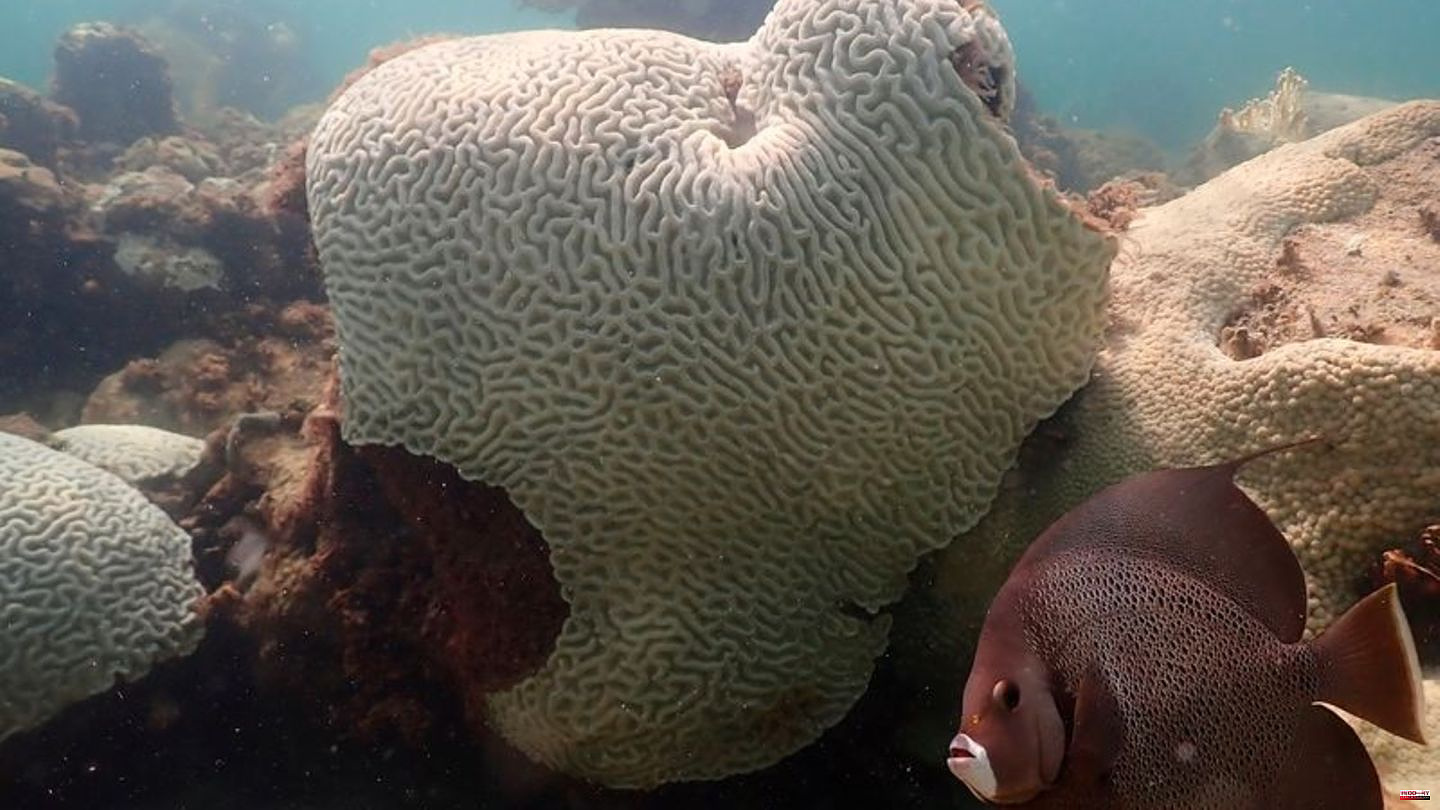Coral reefs around the world have been experiencing mass bleaching since last year. This is the fourth global coral bleaching event since records began and the second in ten years, said the US Weather and Oceanography Agency NOAA. Between February 2023 and April 2024, "significant coral bleaching" was documented in both the northern and southern hemispheres of every major ocean basin, it said.
Bleaching is the fading of the often colorful corals. Corals are so-called cnidarians that live in a community with different colored algae for mutual benefit. However, at high temperatures, the corals reject the algae - and thus lose their color. They no longer grow and are less able to defend themselves against enemies and competitors. If the microalgae return within a certain time because the water temperatures drop again, the coral can recover - otherwise it will die. "As the world's oceans continue to warm, coral bleaching events are becoming more frequent and severe," said NOAA Coral Reef Monitoring Coordinator Derek Manzello.
According to NOAA scientists, climate models have suggested for years that coral bleaching will become more frequent and extensive as ocean warming occurs. That's why NOAA has intensified efforts to restore coral reefs in recent years. For example, the heat wave in Florida last year was unprecedented - it started earlier, lasted longer and had more serious consequences than other heat phases in the region. During the coral bleaching, the oceanographers also learned a lot about how damage limitation can work. For example, coral breeding sites have been moved to deeper, cooler waters or a kind of parasols have been set up elsewhere to protect the corals.
A tragedy of immeasurable proportions has been taking place in the earth's coral reefs for months, the environmental foundation WWF said in response to the NOAA report. If the situation persists for a longer period of time, large parts of these iconic habitats risk dying. "On the Great Barrier Reef, more than 60 percent of the reefs are now affected by the current bleaching and the first signs of mortality can be seen."
According to data from the University of Maine's "Climate Reanalyzer" platform, the global sea surface temperature has been at its highest daily level on every single day for more than a year since measurements began around 40 years ago. According to climate experts, the main cause is man-made climate change. The oceans therefore absorb over 90 percent of the heat that remains in the atmosphere due to the increase in greenhouse gases.












